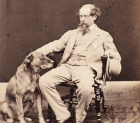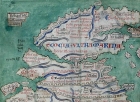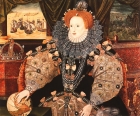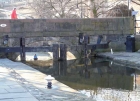Change and continuity
This particular concept is more appropriate for fourth stage Key Stage 1 than Key Stage 2. It is about developing an understanding of the idea that some things change while others old and new stay the same. A house for example will both have doors and windows (continuity) but what those doors are made of and how they work will be different (change) this is about comparing and contrasting in particular to your students own experiences and lives. This should become a process that children can apply in a less explicit manner across Key Stage 2. Read more
Sort by:
Date (Newest first) | Title A-Z
Show:
All |
Articles |
Podcasts |
Multipage Articles
-

Ancient Sumer
ArticleClick to view -

Assessment and Progression without levels
ArticleClick to view -

Battersea: here for every dog and cat – 165 years and still going strong
ArticleClick to view -

Britain's settlement by Anglo-Saxons and Scots
ArticleClick to view -

Case Study: Hit the net!
ArticleClick to view -

Churches as a local historical source
ArticleClick to view -

Coherence in primary history
ArticleClick to view -

Coherence in primary history: How can we get children to see that their history links up?
ArticleClick to view -

Creating drawings and environmental narratives for developing historical thinking
ArticleClick to view -

Developing disciplinary knowledge: how and why castles and forts developed
ArticleClick to view -

Early Islamic civilisation
ArticleClick to view -

Film: What's the wisdom on... Change and continuity (Primary)
ArticleClick to view -

Getting to grips with concepts in primary history
ArticleClick to view -

Hearts, Hamsters and Historic Education
ArticleClick to view -

History in the Urban Environment
ArticleClick to view -

History through children’s voices
ArticleClick to view -

How did a volcano affect life in the Bronze Age?
ArticleClick to view -

Learning about the past through toys and games
ArticleClick to view -

Learning to engage with documents through role play
ArticleClick to view -

Learning what a place does and what we do for it
ArticleClick to view

